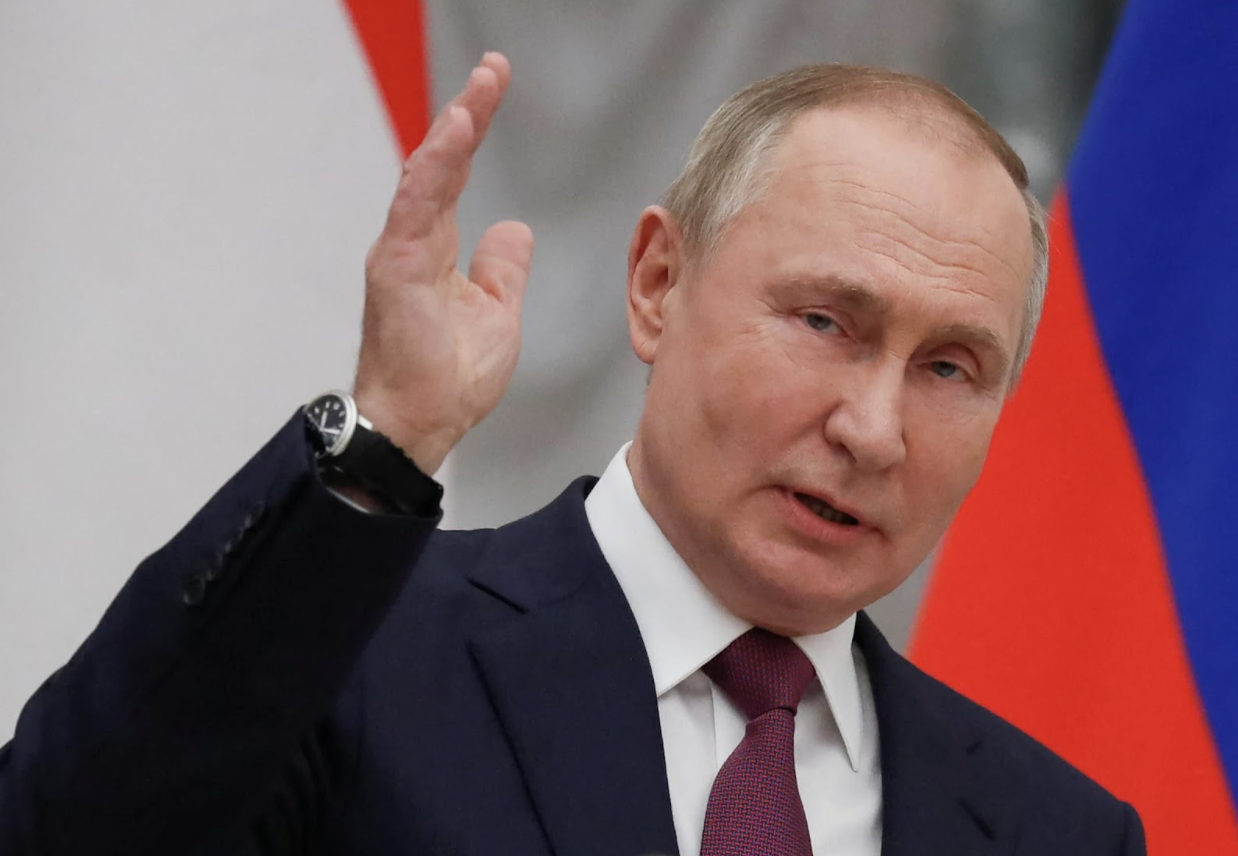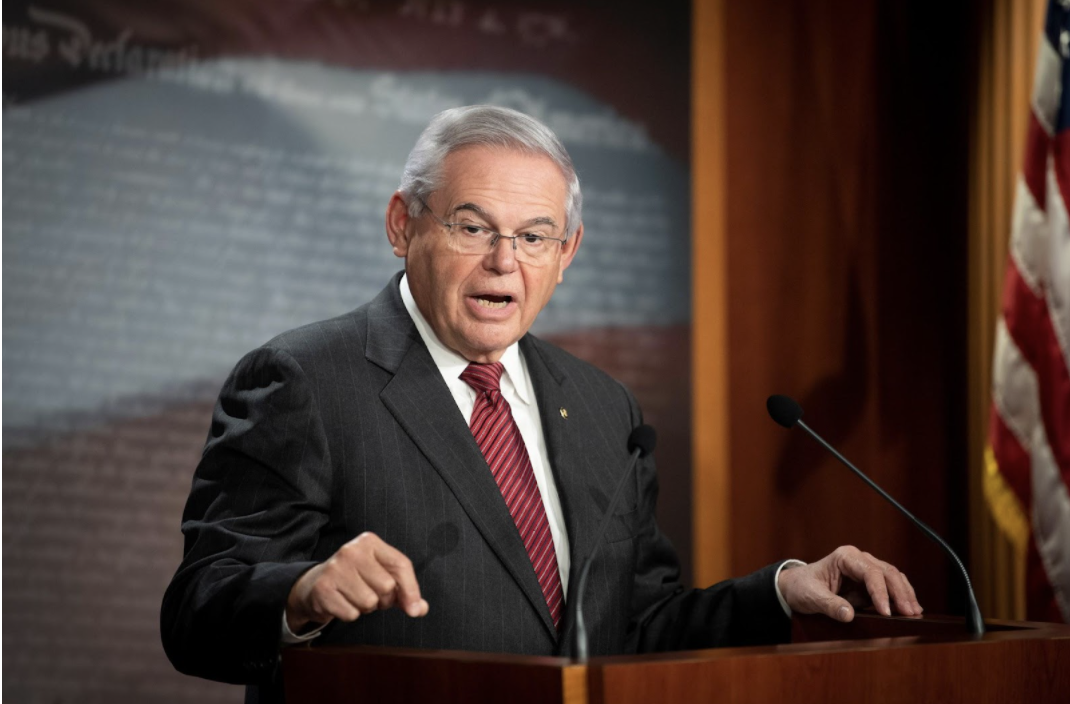United States Senate Prepares Far-Reaching Sanctions Against Russia
Russian President Vladimir Putin speaking at a news conference after discussing a gas supply deal with Hungarian Prime Minister Viktor Orban on February 1st, 2022. Photo: Yuri Kochetkov / Reuters
The United States Senate has rapidly moved to create a new, punishing set of sanctions against the Russian Federation. While the Biden administration meets with European allies to coordinate a unified response in case of a Russian invasion of Ukraine, sanctions are becoming increasingly viewed by the administration as a necessary economic weapon.
Sanctions, which impose trade penalties against a receiving country, were first used against Russia in 2014 in the aftermath of Crimea’s annexation. These original penalties targeted trade with Russian-occupied Crimea in addition to Russian oil projects, banks, and government officials.
Seven years later, tensions have only worsened. Skirmishes between Russian-backed rebels and Ukrainian forces have continued unabated, as Russian claims of Ukrainian, NATO, and American troops near its western border have caused them to amass more than 100,000 troops around Ukraine. These actions are widely believed to be a Russian play for an imminent invasion of Ukraine.
The United States government is now willing to unleash harsher consequences in order to hinder Russian aggression in the East. These sets of proposed sanctions, based on ones that the United States instituted against Iran, would go after foreign lending, sovereign bond sales, the Russian Direct Investment Fund, and the nation’s largest banks. By placing them under the United States’ S.D.N Lists — “specially designated nationals” who are barred from engaging in the American financial system — companies and nations would be forced to cut off ties to these institutions in order to work with American enterprises.
Additional export control considerations could hinder Russia from receiving important intelligence and defense technology, while blocking the assets of business officials abroad could raise issues for Putin’s key allies. U.S. partners, such as the United Kingdom, have backed such moves and agreed to present similar bills to freeze assets and travel in case of an invasion.
Russian discussions in the west have also extended beyond sanctions. In a joint meeting between President Biden and German Chancellor Olaf Scholz, Germany agreed to halt production of the controversial Nord Stream 2 pipeline if Ukraine was invaded. The pipeline, which plans to ship natural gas to Ukraine through the Baltic sea, has been a point of disconnect between Russian energy-dependent Germany and other NATO states.
Senator Bob Menendez (D-N.J.), as the head of the United States Senate Committee on Foreign Relations, has been working with other senators to push new sanctions against Russia. Photo: Caroline Brehman / CQ Roll Call
The economic toll from these various measures could ultimately devastate Russia’s economy, and shut it off from global markets. Past sanctions on Russia in 2014 ultimately led to a slow-down in the Russian economy, as the nation had to “abstain from financial resources” while its markets slumped. The expected 2.5-3.0% growth in GDP from 2014-2020 ultimately never arrived. A wider range of sanctions specifically targeting Russia’s finances, in this regard, could send the country spiraling.
Nevertheless, the question remains as to whether economic punishment would change Russia’s course of action. Despite the impact of the 2014 sanctions, Russia’s direction has stood largely unchanged in its aggressive approach towards Ukraine and other neighboring countries. In response to new U.S. sanctions in April 2021 over Russia’s alleged involvement in election meddling and the SolarWinds cyberattack, Russia struck back by expelling U.S. diplomats and restricting NGOs. Last week, Kremlin spokesman Dmitry Peskov affirmed that any new sanctions would be “destructive” for U.S.-Russia relations, suggesting that Russia would not hesitate to further retaliate.
There also remains global implications for heavy sanctions on the Russian economy. The planned set of sanctions are ambitious — the risk of blocking a country as large as Russia off from foreign markets could destabilize the existing financial system.
Ukrainian President Volodymyr Zelensky has notably expressed frustration with how western leaders have openly discussed a Russian invasion of Ukraine. By spreading panic, leaders could risk a pre-emptive economic collapse in the nation, and thus strengthen Russia’s standing. Behind this veil of criticism, however, Zelensky appears to have urged various senators to consider extensive sanctions on the Russian state in order to weaken its position.
Talks continue in congress for now, as both Democrat and Republican senators work to finalize details regarding the timing and scope of sanctions. Republicans have suggested an earlier time frame for implementing sanctions, while democrats have emphasized a rollout in the aftermath of an invasion to “punish” Russia’s actions. There is a sense of urgency, however, to pass the bill within the upcoming weeks before a potential conflict unfolds.
“We cannot have a Munich moment again,” Menendez noted. Russia, for its part, operates undeterred.


